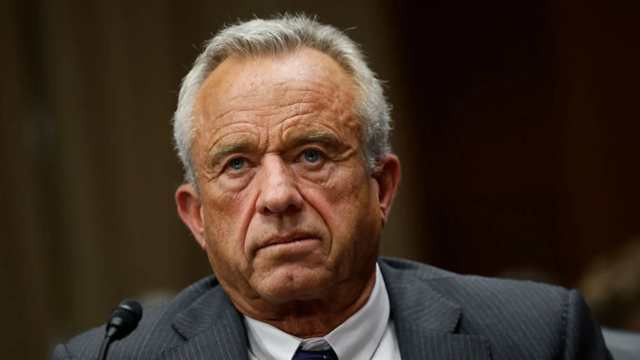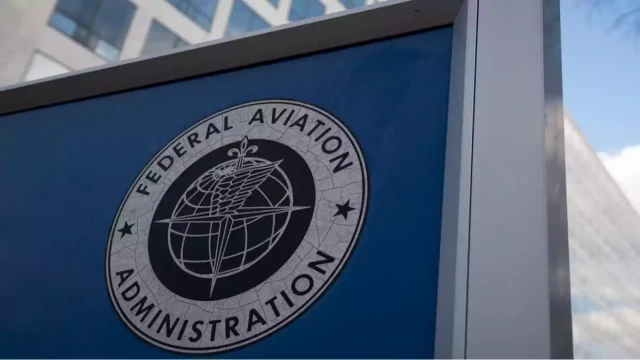৭ মাঘ ১৪৩২
HHS to cut 10,000 jobs in major overhaul
28 March 2025 23:03 PM

Thousands of HHS employees will lose their jobs and the number of agencies will shrink in a massive plan by HHS Secretary Robert F. Kennedy Jr. to reshape the department and realign its priorities to tackle chronic diseases.
Thousands of HHS employees will lose their jobs and the number of agencies will shrink in a massive plan by HHS Secretary Robert F. Kennedy Jr. to reshape the department and realign its priorities to tackle chronic diseases.
The overhaul, which will reduce the workforce by more than 20 percent or 10,000 workers, will affect all HHS agencies.
According to HHS, the department will be downsized from 82,000 workers to 62,000 and reduce its divisions from 28 to 15, with the creation of an office called the Administration for a Healthy America. Regional offices will also be cut in half. The last time HHS had that many employees was 2002.
The FDA will dismiss 3,500 employees, which HHS said will not impact drug, medical device, food reviewers or inspectors, according to a document obtained by POLITICO. About 2,400 employees will be fired from the CDC and the Administration for Strategic Preparedness and Response (the two are being merged). CMS will let go of 300 workers, and the NIH will cut 1,200.
“We’re going to eliminate an entire alphabet soup of departments and agencies while preserving their core functions,” Kennedy said in a six-minute video explaining the cuts that he posted to X on Thursday. “We’re going to do more with less.”
Kennedy acknowledged that the deep cuts would plunge the department into a “painful period” that requires the culling of tens of thousands of employees and the closure of offices across the country. Trump officials had closely guarded the reorganization plans for weeks, prompting confusion and anxiety at HHS agencies.
Kennedy justified the move as a reversal of years of mismanagement, denigrating the over half of HHS employees who he claimed “don’t even come to work” and accusing some divisions within the department of being captured by the health care industry.
“A few isolated divisions are neglecting public health altogether and seem only accountable to the industries that they’re supposed to be regulating,” Kennedy said of the plan, first reported by The Wall Street Journal. “In one case defiant bureaucrats impeded the secretary’s office from accessing the closely guarded databases that might reveal the dangers of certain drugs and medical interventions.”
Kennedy did not specify the divisions he was referring to, and an HHS spokesperson did not immediately respond to a request for details. But Kennedy argued that drastically downsizing HHS would ultimately help improve its efforts to improve Americans’ health, blaming what he characterized as bloated bureaucracy for failing to arrest rising rates of chronic disease.
According to HHS, the reorganization will:
— Combine the Office of the Assistant Secretary for Health, Health Resources and Services Administration, Substance Abuse and Mental Health Services Administration, Agency for Toxic Substances and Disease Registry, and National Institute for Occupational Safety and Health into one agency: The new Administration for a Healthy America.
— Put the Administration for Strategic Preparedness and Response, created in 2006 with a focus on responding to disasters, into the CDC.
— Create a new assistant secretary for enforcement, who will oversee departmental appeals, Medicare appeals and the Office for Civil Rights.
— Merge the Agency for Healthcare Research and Quality with the Office of the Assistant Secretary for Planning and Evaluation to create the Office of Strategy.
— Shuffle programs from the Administration for Community Living, which support older Americans and people with disabilities, into other agencies, including CMS and the Administration for Children and Families.
All federal departments were required by the White House to submit plans to downsize their work forces, in a process known as Reduction in Force or a RIF, by March 13.
At HHS, these plans come after several other attempts to dismiss staff. In February, hundreds of probationary employees across HHS agencies were dismissed, though a federal judge ordered them rehired as the White House asks the Supreme Court to weigh in on the legality of the move.
HHS has also offered early retirement and resignation packages to some employees, including one that offered several weeks pay and a lump sum of up to $25,000.



















Comments Here: